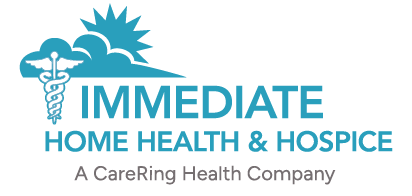Qualify for Home Health Care
 How do I know if my patient/family member qualifies for homecare?
How do I know if my patient/family member qualifies for homecare?
There are certain conditions that must be met for a patient to qualify for skilled home health services under Medicare, Medicaid, and some insurance companies; they are:
- Be confined to the home (homebound);
- Be under the care of a physician;
- Receive services under a plan of care established and periodically reviewed by a physician;
- Need of skilled nursing care on an intermittent basis or need physical therapy or
- Speech therapy;
- Have a continuing need for occupational therapy
Clarification of Homebound:
This does not mean the patient must never leave their home. In general terms, a patient is considered "home bound" if they:
- Have a medical condition or an injury that restricts their ability to leave their home unless they use an assistive device (crutches, cane, wheelchair, walker);
- Require the use of special transportation;
- Require the assistance of another person;
Or, leaving their home is not medically advised
Patients may leave their homes occasionally; for church services, hairdressing, attending a family functions while being driven in a vehicle by another person. Absences from the home to receive medical treatments are also allowed, such as:
- Attending adult day centers (licensed by the State of Pa) to receive medical care;
- Kidney dialysis;
- Chemo/radiation therapy;
- And outpatient physical therapy, including whirlpool therapy
Examples of Patients who qualify for Homecare Skilled Services:
- Patients who require intravenous and intramuscular injections
- Patients needing Foley catheter insertions
- Patients with pre-existing peripheral vascular or circulatory disease (needing observation for complications, pain management, teaching related to skin care, preservation of skin integrity,and prevention of skin breakdown)
- A patient who requires teaching related to illness or injury until they can demonstrate Independence in their care.
- Patients in need of medication management which also requires a nursing assessment (such as blood pressures, pulses, respiratory assessment, blood sugars, oxygen saturations),
Monitoring of medication changes or physician consults.
Examples of patients who do not qualify for skilled care:
- Skilled nurse admits a patient to agency for bathing, and completes the teaching of Medication Administration and safety in the home, at the admission visit.
- Patient is not compliant with taking medications, and needs reminders to take them on
time. - Patient has a wound, which the caregiver manages competently, and patient is driving their own vehicle.
- Medication set-up when the medications taken do not require ongoing nursing
assessments,
Monitoring or physician consults.
Venipunctures alone do not qualify a patient for home care. The documentation must
support the rationale behind the venipunctures, for example:
- A patient is taking Coumadin (blood thinner) and requires Prothrombin time to monitor its effectiveness.Documentation reflects no changes in the Coumadin therapy for 6 weeks. This patient would not qualify for skilled care based on this alone.
- A physician requests a chemistry panel and CBC drawn on his patient prior to the patient’s 6 month checkup. This patient would not qualify for skilled care based on this alone.

